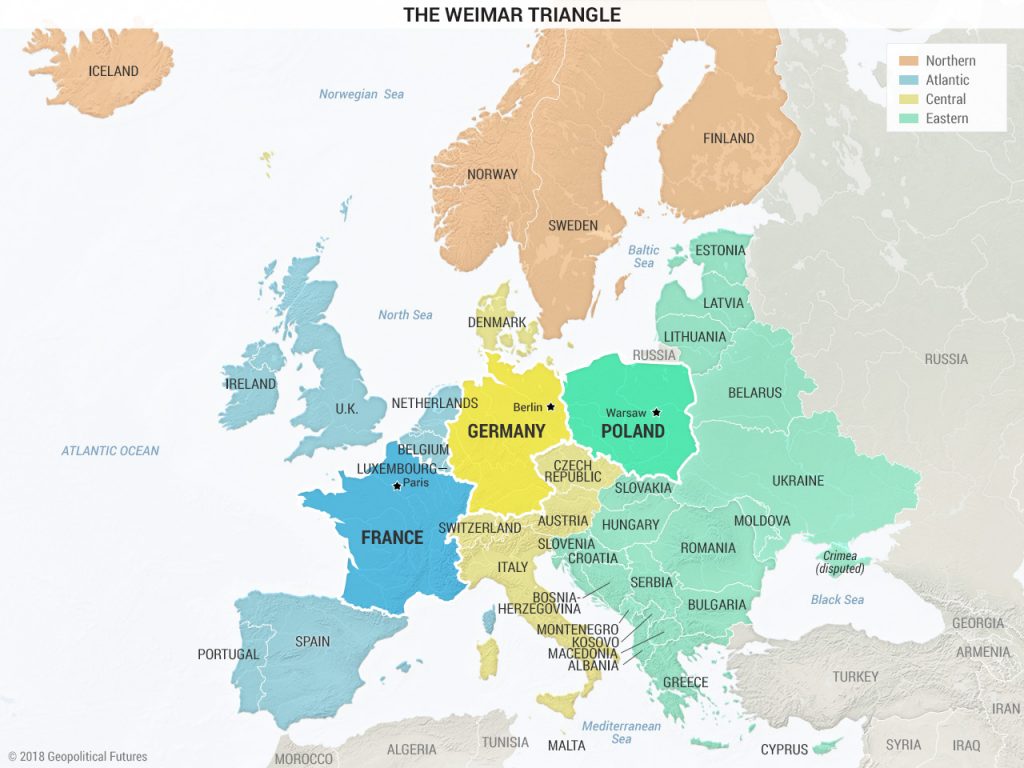The problem facing Merkel is that Germany cannot transform the EU alone, and her list of allies has grown thin. As long as Emmanuel Macron governs France, Merkel has a willing partner in Paris, but the realities of politics are already descending upon Macron, whose domestic support is declining. To the east, Germany has not only failed to find a willing partner – it has pushed its would-be partners away for fear of diluting German power inside the EU’s vast and laborious bureaucracy. Beggars can’t be choosers, however, and so Germany must work with what it has. Enter “the Weimar Triangle.”
Originally a grouping of the foreign ministers of Germany, France and Poland founded after the collapse of the Soviet Union, Germany is now touting the Weimar Triangle as a salve for the EU’s problems. The grouping has not met since 2015, when Poland’s current government came to power, but not because Poland wasn’t interested: Poland has previously raised the possibility of meeting with Germany and France in the Weimar format. Now it appears Germany is willing to let bygones be bygones and assemble the group once more. Germany’s foreign minister made explicit mention of the Weimar Triangle during his visit to Poland, identifying its resurrection as integral to fixing Europe’s problems. In other words, Germany needs Poland’s help, if it isn’t already too late.
It remains to be seen whether this is just talk, or whether Germany is prepared to compromise. What Poland won’t tolerate is German economic colonialism masquerading as a union of Europe, a bloc in which Germany gets to set the rules and threaten to take away funds from anyone who doesn’t play the way it wants (which has been Germany’s position on Poland during the past three years). The question then becomes: Is Merkel willing to share power with Paris and Warsaw, and can she survive politically if she does?
The Weimar Triangle is a seductive idea, and it has some geopolitical logic behind it. It would unite the three most important countries in the three regions of continental Europe – western, central and eastern – into a powerful force for EU reforms and political change. And if the EU is to survive, that change is badly needed.







